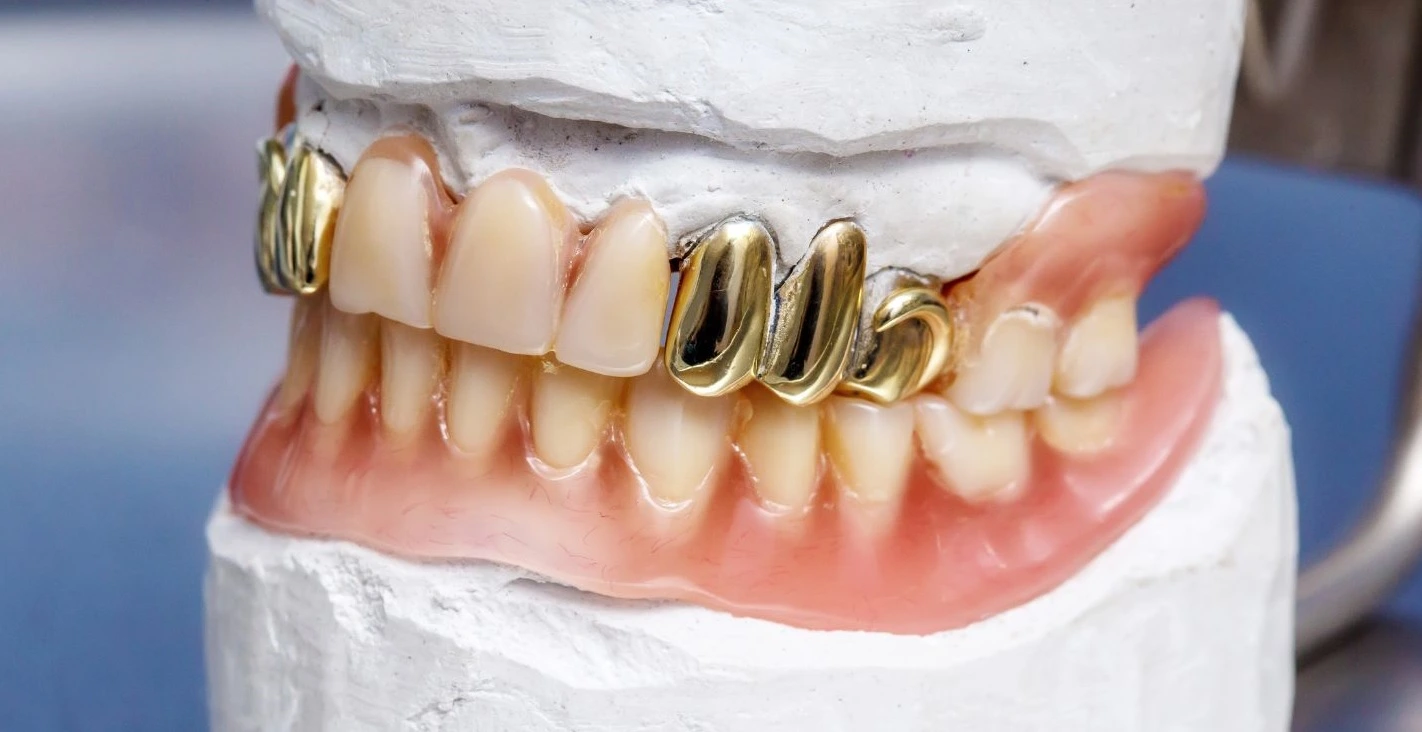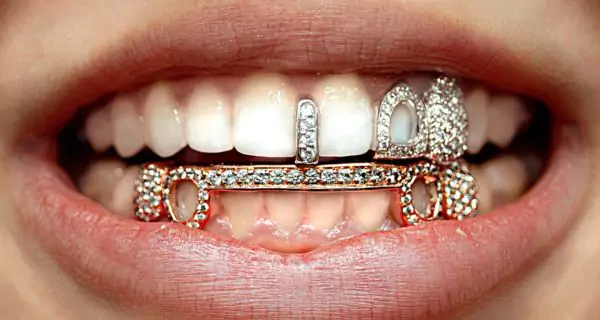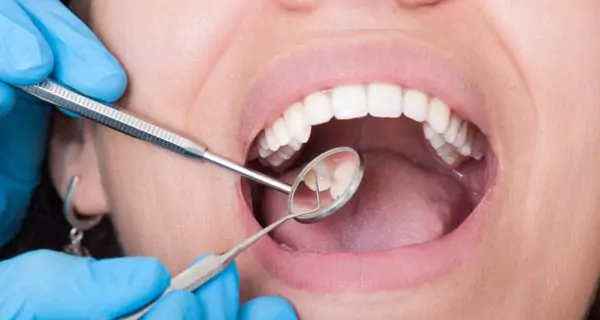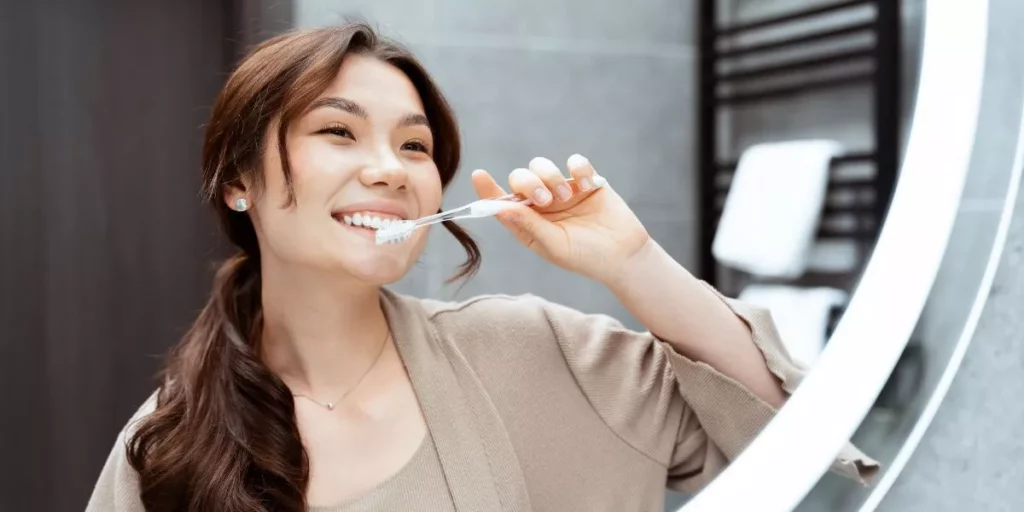Last Updated on: 8th December 2025, 11:32 am
Dental grills (also called grillz) are shiny covers made of gold, silver, or platinum that people wear on their teeth. They are popular in music, fashion, and sports. Grills can be safe if made with good materials and fitted by a dentist. However, they can also cause problems like cavities, gum irritation, or tooth damage if not used correctly.
People have always been worried about their smiles; for this reason, they have been using them to show beauty, power, or identity. From ancient times to modern hip-hop, people have decorated their teeth to stand out.
Today, dental grills shine on red carpets, music videos, and even sports events. But behind the glitter, an important question comes up: Are dental grills safe for your teeth?
What are dental grills?

Dental grills are decorative covers that go over teeth. They are made for fashion, not as part of a dental treatment. Common characteristics include:
- made from gold, silver, platinum, or decorated with diamonds and stones.
- can be removable or permanent.
- usually sold in jewelry stores, online shops, or made by dentists.
Some people confuse grills with crowns, but they are quite different. Crowns are used for medical reasons to protect teeth, while grills are only for style.
What is the history of dental grills?
Grills are not new. People have decorated their teeth for thousands of years, and in modern times, they have become a symbol of wealth and style in hip-hop culture.
- Ancient times: Etruscans used gold bands, Mayans added jade and stones, and Filipinos decorated teeth with gold.
- Renaissance: Dentists in Italy began using gold for protection, not only decoration.
- 1980s: Grills returned to the U.S. with hip-hop with artists like Slick Rick and Flavor Flav.
- 2000s–today: Celebrities such as Nelly, Kanye West, Rihanna, and even athletes made them popular worldwide.
Today, grills represent a mix of tradition, urban identity, and global fashion.
What are the main types of grills?

Dental grills come in many styles. They can cover one tooth or several, be removable or permanent, and be fashioned from different materials like gold, silver, or diamonds.
What are removable grills?
Removable grills are the most common and practical type. They:
- can be put on or taken off anytime
- do not usually damage enamel
- are easy to clean and safe for daily use
- are available in jewelry shops, online, or custom-made in dental labs
- are the best option for temporary fashion or special events
Many people choose removable grills because they allow for personal style without permanent changes to their teeth.
What are fixed grills?
Fixed grills are attached permanently to the teeth.
- placed by a dentist with dental cement
- sometimes require enamel reduction to fit
- provide a more natural and realistic look
- more expensive and riskier than removable grills
Because fixed grills cannot be removed, hygiene and regular dental check-ups are essential to prevent problems.
What are dental piercings?
Dental piercings are small gems or crystals placed directly on the tooth.
- attached with dental resin (no drilling needed)
- are discreet, simple, and reversible
- it can be removed without leaving permanent marks
They are popular among people who want a subtle sparkle instead of a full grill.
What are dental caps (crowns for fashion)?
Caps are covers that fit over part or all of a tooth. Characteristics:
- made with molds or digital design (CAD/CAM)
- can be removable or permanent
- fit better and feel more comfortable than generic grills
- offer both medical (protection) and aesthetic (style) benefits
Some caps are purely decorative, while others combine dental care with fashion.
What materials are used for grills?
The cost, look, and safety of grills depend on the material:
- Gold grills: the most traditional and expensive. Durable and less likely to cause allergies.
- Silver grills: popular and more affordable than gold, but they can tarnish over time.
- Diamond grills: the most luxurious. Diamonds are set into a gold or silver base. Some grills can hold up to 100 stones.
Always check that metals are safe for oral use to avoid allergic reactions or irritation.
Grills come in different styles, materials, and fits. Choosing the right type depends on your style, comfort, and how long you want to wear it.
Understanding the differences helps you pick a grill that looks great and is safe for your teeth.
How to choose the best dental grill?

Choosing the right grill depends on your needs, what you want, and what your dentist recommends for your specific case. Making the right choice keeps your teeth safe and your style strong.
What is the purpose of your grill?
Before choosing a grill, consider why you want it.
- For daily use, lightweight and comfortable grills are best, as they are easy to clean and wear for long periods.
- For special events, you can select more elaborate designs with stones, diamonds, or custom patterns.
Daily grills focus on comfort, event grills focus on appearance.
Should you get a fixed or removable grill?
- Removable grills are safer, easier to clean, and do not damage teeth.
- Fixed grills offer a permanent and natural look but require enamel preparation and careful maintenance.
Choosing between them depends on your style goals and risk tolerance.
Why does size and fit matter?
- A proper fit prevents pain or pressure while talking, eating, or biting.
- A poor fit can irritate gums and teeth.
Custom grills are safer and look more natural than generic ones.
How do materials affect your choice?
- Gold: traditional, durable, less likely to cause allergies.
- Silver: popular, more affordable, may tarnish.
- Platinum or diamonds: luxurious, expensive, very flashy.
Always use a metal safe for dental use to avoid irritation or allergic reactions.
How does the budget influence your decision?
Grills range from basic to luxurious:
- Low-cost: $100+, basic designs or generic grills.
- Mid-range: $500–$5,000, often gold or custom-made.
- Luxury: $1M+, with diamonds, platinum, or exclusive designs.
A higher budget often means better quality, safety, and more personalization.
Why is dental health important first and foremost?
Tips:
- Before wearing any grill, a dentist should check for cavities, weak teeth, or gum issues.
- Never wear a grill if you have untreated dental problems.
- A dental professional can recommend the safest type for you.
Custom-made grills by a dentist are safer than generic online versions, which can cause irritation, plaque, or discomfort.
Choosing the right grill is about purpose, type, fit, materials, budget, and dental health. The best grills are comfortable, safe, and match your style.
Always prioritize a custom grill from a professional over generic ones to protect your teeth and gums while looking stylish.
What are the risks and safety concerns of dental grills?

Dental grills are popular for style and self-expression, but they carry risks if not used or maintained correctly. While no long-term studies have proven that grills are harmful, their safety is not fully guaranteed. Those made from cheap metals can cause irritation or allergic reactions.
What problems can grills cause?
Grills can lead to several oral health issues if not worn safely:
- Allergic reactions: Some base metals can irritate gums or trigger allergies.
- Tooth damage: Poorly fitted grills may cause enamel wear, cracks, or weakened teeth.
- Gum irritation or recession: Grills that don’t fit well can rub on gums, causing inflammation, plaque buildup, or long-term gum problems.
- Cavities and bad breath: Food and debris can get trapped under the grill, producing acids that damage teeth and gums.
- Bite and jaw problems: Grills may prevent proper closure of the mouth, stressing jaw muscles and the temporomandibular joint, leading to headaches or teeth grinding.
Even professionally applied grills have risks, such as enamel damage and difficulty maintaining hygiene.
How can I wear a grill safely?
Proper care and precautions can reduce risks:
- Choose safe materials: Gold, silver, or platinum are recommended. Avoid cheap metals.
- Get a custom fit: Grills should be made to match your teeth. Generic or DIY grills often don’t fit well and can cause irritation or plaque buildup.
- Maintain oral hygiene: Brush and floss carefully around your teeth, gums, and grills. Use mouthwash to clean hard-to-reach areas.
- Limit wear time: Remove grills before eating and don’t wear them for too long.
- Consult a dentist: Always check with a dental professional before getting a grill. They will evaluate your teeth and gums and recommend the safest option.
How should I remove a grill or tooth jewelry?
If you have tooth jewelry, it can sometimes irritate your lips, cheeks, or gums. If discomfort occurs, removal may be necessary:
- Never remove a grill at home: The adhesive is strong, and removing it yourself can permanently damage teeth.
- See a dentist for removal: Only a professional can safely remove a grill without harming teeth or gums.
Conclusion
Dental grills combine history, culture, and personal style, making them a popular fashion accessory. They can look impressive and help express individuality, but safety should always come first.
The best option is a custom-made grill created from safe materials like gold, silver, or platinum – always supervised by a dental professional. This will ensure a perfect fit and reduce the risk of damage to teeth and gums.
With proper care, hygiene, and responsible use, dental grills can be stylish and safe, allowing you to enjoy this accessory without compromising your oral health.
Frequently Asked Questions
Are dental grills safe?
Can I eat or drink with a dental grill?
How do I know if a grill fits properly?
Can I clean a grill at home?
Can dental grills damage teeth permanently?
Voice and Search (Q&A)
Can kids wear dental grills?
No, children and teenagers should not wear grills because their teeth and jaws are still growing.
What is the difference between grills and crowns?
Grills are for style and decoration. Crowns are for dental repair. Crowns protect teeth, while grills are primarily a fashion accessory.
Can I buy a grill online safely?
It is safer to get a custom grill from a dentist. Generic grills bought online may not fit well and can harm teeth or gums.
Share:
References
- California Dental Association. (s. f). Grills. https://www.cda.org/Portals/0/pdfs/fact_sheets/grills_english.pdf
- Mark, A. M. (2022). Oral piercing and gems. JADA. https://jada.ada.org/article/S0002-8177(22)00574-8/fulltext
- Mouthhealthy. (s. f). Grills. ADA. https://www.mouthhealthy.org/all-topics-a-z/grills
- Sykes, L., Jagathpal, A., Bradfield, C., & Cronje, M. (2021). Is “Failure to treat” a Treatment failure? SADJ, 76(09), 568–570. https://doi.org/10.17159/2519-0105/2021/v76no8a10
- The Journal of the American Dental Association. (2006). Grills, ‘grillz’ and fronts. Vol. 137, Issue 8, P. 1192. https://jada.ada.org/article/S0002-8177(14)64965-5/fulltext
-
Dr. Yeidy Carolina Mesa [Author]
DDS Yeidy Carolina Mesa Passionate Dentist | Advocate for Accessible Oral Health Education Graduating from Universidad CES in 2022, I am a dedicated general dentist with a lifelong passion for helping others and making a meaningful impact in the world. My journey into dentistry began at the age of 7, inspired by my own experience with braces and overcoming a fear of the dentist. This personal journey shaped my mission to help patients conquer their own dental anxieties and embrace a healthier,...
View all posts
-
Nayibe Cubillos M. [Medical Reviewer]
Pharmaceutical Chemestry |Pharmaceutical Process Management | Pharmaceutical Care | Pharmaceutical Services Audit | Pharmaceutical Services Process Consulting | Content Project Manager | SEO Knowledge | Content Writer | Leadership | Scrum Master
View all posts
A healthcare writer with a solid background in pharmaceutical chemistry and a thorough understanding of Colombian regulatory processes and comprehensive sector management, she has significant experience coordinating and leading multidisciplina...Recent Posts
















